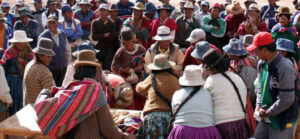As attempts to ban books surged to record levels in 2023, the titles most targeted continued to be those centered on LGBTQ experiences and people of color.
The big picture: More than 4,200 books were targeted for censorship last year, marking a 65% increase over the previous year, according to the American Library Association (ALA).
- The book-banning movement often targets books written by or about members of the LGBTQ community and people of color, with organized attempts led by conservatives in a culture war centered on what children should be exposed to.
- There were more than 150 bills in 35 states last year aimed at restricting access to library materials and punishing staff who don’t comply, per the New York Times.
Zoom in: Banned books have been targeted for including sexual content, profanity, LGBTQ themes and critical race theory.
- ALA President Emily Drabinski said that based on the books being challenged most frequently, “it’s obvious that the pressure groups are targeting books about LGBTQIA+ people and people of color.”
- Almost all of the top 10 most challenged books in 2023 cited LGBTQIA+ content as one of the reasonings, with several of the titles having been targeted in previous years as well.
The most challenged book of 2023 include:
- “Gender Queer” by Maia Kobabe
- “All Boys Aren’t Blue” by George M. Johnson
- “This Book is Gay” by Juno Dawson
- “The Perks of Being a Wallflower” by Stephen Chbosky’
- “Flamer” by Mike Curato
- “The Bluest Eye” by Toni Morrison
- “Tricks” by Ellen Hopkins
- “Me and Earl and the Dying Girl,” by Jesse Andrews
- “Let’s Talk About It,” by Erika Moen and Matthew Nolan
- “Sold” by Patricia McCormick
What they’re saying: “These are books that contain the ideas, the opinions, and the voices that censors want to silence — stories by and about LGBTQ+ persons and people of color,” said Deborah Caldwell-Stone, director of the ALA’s Office for Intellectual Freedom.
- She said that each demand to censor such books “is an attack on our freedom to read, our right to live the life we choose, and an attack on libraries as community institutions that reflect the rich diversity of our nation.”
Go deeper:




